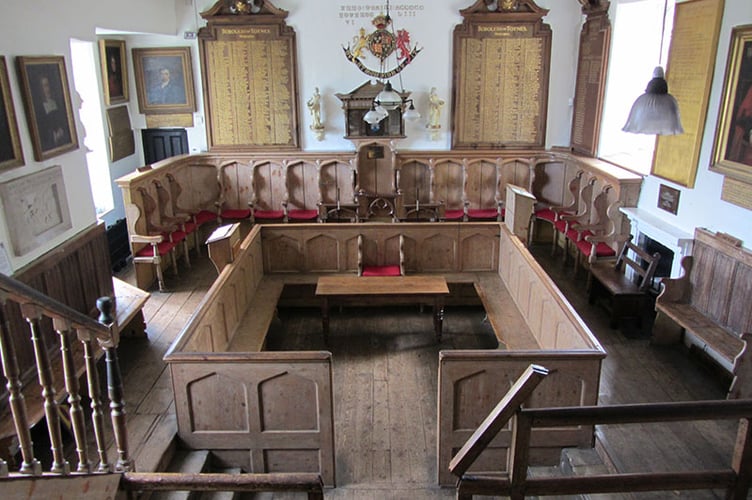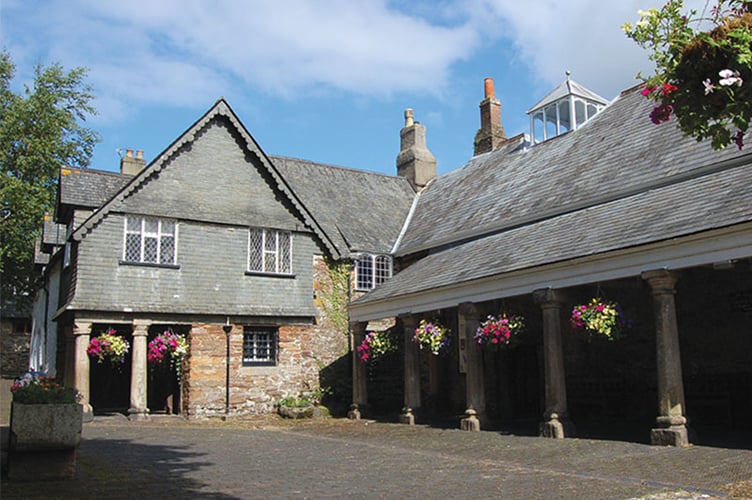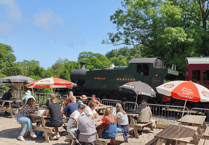Volunteers enjoyed a coffee and cake morning at the ancient Totnes Guildhall ahead of the venue opening to the public.
The historic property is reopening from Monday to Friday’s between 11am and 3pm following the easing of Covid restrictions.
It has been the heart of the town’s administrative, legal and ceremonial life for centuries, serving as court, school, prison and meeting place.
It has been home to the town council for more than 450 years, and features boards in the lower hall listing more than 600 mayors in gold leaf.

The Guildhall’s history can be traced back to 1260 when King John granted a charter to Totnes making it a free town, which enabled it to draw up its own laws.
The merchants also obtained permission to set up their own Guild, which by the middle of the 13th century had 120 members.
The original Totnes Guildhall was located in the High Street but in 1553 King Edward VI gave Totnes a charter authorising the re-use of a former priory building as a Guildhall and a boy’s school.
Much of the priory had been destroyed in the early 1500s when England’s monasteries were dissolved under the rule of Henry VIII.
The Guildhall was built on the ruins of the priory and in 1624 was converted into a magistrates court – remaining so until 1974.
Soldiers were billeted there during the Civil War, and the building was also used as the town gaol.
Visitors can see the original cells where, until 1887, prisoners awaited trial and punishment; or climb the 17th century stairs to the elegant council chamber with its plaster frieze and the large oak table where Oliver Cromwell sat to plan the closing stages of the Civil War in 1646.
The building also features a 16th century flower mural, an oil painting by William Brockendon and ancient town stocks.
There is also a small museum housing an automa by Ron Fuller; the clock mechanism for the East Gate Clock plus the original Totnes Seal.
Some of the foundations and walls date back to the time of the priory and in the lower chamber is a list of mayors which dates back to 1359.
Today the Guildhall is used for town council meetings and other ceremonies such as Mayor Choosing, and can be hired for weddings, civil partnerships and other ceremonies.

It is free to visit the Guildhall although donations are requested to help repair the frieze and plasterwork in the council chamber, and to repair the glass turret and help pay for the general upkeep of this magnificent piece of Totnes’ history.





Comments
This article has no comments yet. Be the first to leave a comment.